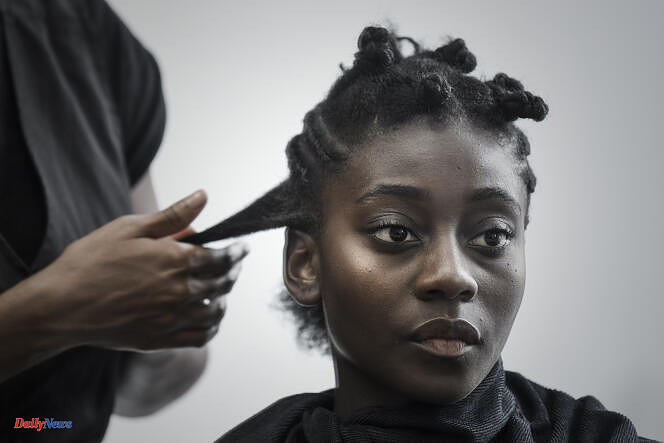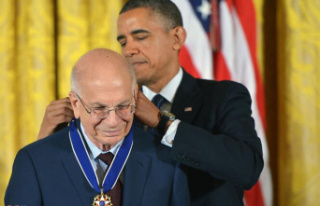At the age of 6, Kenza Bel Kenadil had her first hair straightening. This first will be the preamble to thirteen years of straightening, with an iron or using chemical processes. A way for her to put an end to the harassment she experiences at school because of her hair texture: hands in her hair or pens introduced without her consent, insults.
In the professional context, she particularly remembers the remark of one of her employers: "I had my hair half tied up, like a colleague with straight hair, and he asked me to go home to change my hairstyle and hide my hair, or not work. » Today an activist against hair discrimination, Kenza Bel Kenadil promised herself, seven years ago, to no longer touch a straightener or relaxer. On Instagram, where she is followed by nearly 260,000 people, many women, primarily non-white, are turning to her to denounce employers' demands on their haircuts.
It is for this type of experience to be recognized that MP Olivier Serva (Libertés, independents, overseas and territories, Guadeloupe) has proposed a bill. Its text, which must be examined in the National Assembly on Thursday March 28, plans to include discrimination relating to “the cut, color, length or texture of hair” in the list of discrimination punishable by conviction. in the labor code, the penal code and the general civil service code.
“A racist colonial perception of black bodies”
For the parliamentarian, the adoption of this law “would allow all victims of hair discrimination to rely on the legislative arsenal and remind us that under no circumstances should an employer force an employee to change their hair type” . If discrimination linked to physical appearance is already considered illegal, Olivier Serva believes that his text clarifies these, taking the example of an Air France steward who had to go to the Court of Cassation to prove he was discriminated against because of his braided hair – a legal process that lasted ten years. Mr. Serva also says he looked at the United States, where several states have legislated precisely this form of discrimination.
But unlike American legislation, the text examined in the National Assembly does not mention a racist aspect to this form of discrimination. “This distinction says something about the French context,” notes Daphné Bédinadé, doctoral student at EHESS in ethnology and social anthropology. The racism in the text is never explicit. However, to only talk about hair discrimination is to overshadow the problems of people who have very discriminated hair, i.e. mainly black women. »
“While this may seem trivial to some, in France and in predominantly white countries, this discrimination hinders access to institutions such as work or access to housing for example,” agrees Douce Dibondo, author of La Charge Racial: vertigo of crushing silence (Fayard, 270 pages, 20 euros). “Hairstyles are seen as eccentric, unprofessional, even dirty, and they should be made acceptable to whiteness and its falsely universal ideology. The injunction to straight and tamed hair is rooted in a racist colonial perception of black bodies,” believes the writer.
Years of straightening “by assimilation”
Aude Livoreil-Djampou, owner of Studio Ana'e, a Parisian hair salon specializing in curly, frizzy and frizzy hair, notes that she has "still many clients who report comments about their natural hair" and undertake straightening processes . The show, however, notes a drop in this type of request. On the one hand due to the increasingly recognized harmfulness of the products used; on the other hand because many women have decided to return to frizzy hair.
After years of straightening "by assimilation", Fatou N'Diaye, creator in 2007 of the blog Blackbeautybag, thus "learned to love [her] hair" by doing a "big chop", a technique consisting of cutting the straightened lengths on frizzy hair for a hair transition. “It was a way of telling the world that my hair does not need to be hidden, flattened or straightened for me to be desirable or intelligent and above all to get rid of the legacy of colonialism which made us hate our hair", confides the one who has become an influencer and consultant to major cosmetics and luxury brands.
However, this self-affirmation can involve risks, “depending on the professional framework in which one works”, for Daphné Bédinadé. Finally, “asserting oneself [also means taking the risk] of not getting a job or an apartment because of a racial offense,” says author Douce Dibondo. “It’s a hair-raising injustice! “, she denounces. Situations which Olivier Serva's text, even if adopted, will have great difficulty putting an end to.












